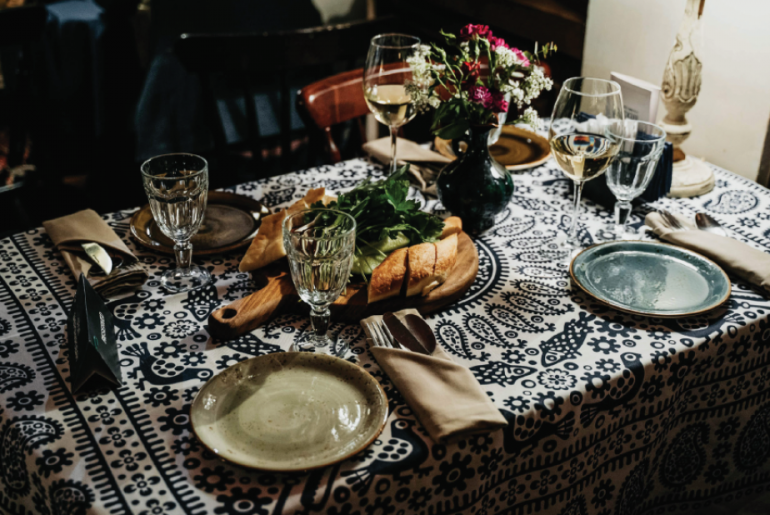With seven restaurants in three cities of Kazakhstan, the Georgian restaurant Darejani occupies second place on TripAdvisor. Restaurants that were used to serving 300 patrons per day were forced to shut down for over two months. The first major change after the Coronavirus lockdown was lifted was to try to host guests of a younger generation. Like most businesses, ABR management has gotten used to the idea of not earning a profit this year. Now getting over the crisis with zero losses is the main goal of the company.
The COVID-19 pandemic has been the biggest shock to Kazakhstan’s economy in almost two decades, and it is already having a highly negative impact on growth, the World Bank’s Kazakhstan Economic Update, which is a semi-annual report, states the following:
Kazakhstan’s GDP is projected to contract by 3% in 2020 and to recover only modestly by 2.5% in 2021. A prolonged crisis is likely to increase poverty and increase inequality within society. The poverty rate may rise in 2020 from a projected 8.3% to 12.7%.
ABR is owned by Kazakh businessman Askar Baytassov and has thirty establishments in Kazakhstan including Darejani, which was founded in 2012. Before the pandemic, these restaurants hosted up to three million patrons per year.
Forbes Georgia interviewed Asem Turebekova, brand manager of the chain of Georgian restaurants. In her interview, Turebekova talked about losses during lockdown, new trends in the restaurant industry and her expectations regarding the second wave of the pandemic.
The first Darejani restaurant was opened in Almaty eight years ago by ABR. At that time, the company already had several Italian restaurants called Del Papa. Georgian cuisine in Almaty in 2012 was represented mainly by small cafes serving mixed cuisine from the Caucasian region –Shashlik, Khychin, Dolma and Khachapuri. These cafes had low prices, loud music, a limited menu and unstylish interiors. There was a need for a Georgian restaurant of higher class, with a Georgian chef, with all the traditional dishes of Georgia, good wine, and a modern interior. In the first years after its opening, the restaurant received over 300 guests per day. These were mainly residents of the city and tourists; for a long time the restaurants at in second place on TripAdvisor. The opening of Darejani set a new trend for Georgian cuisine, in the following years many restaurants were opened for different segments of patrons– from snack bars to luxurious restaurants.
From the very beginning, the first brand-chef of Darejani – Demuri Kadelia(who is originally from Mingrelia) – developed and introduced dough standards for Khinkali and Khachapuri, the taste of Chashushuli, Chakhokhbili and Mingrelian meat. After this, the management invited different chefs from Georgia to develop and improve the taste of these dishes, and they remain the most popular in the restaurant network.
Lockdown
From the inception of the Coronavirus outbreak, Turebekova followed the news in China and Italy, but at first it seemed that the viruswould not reach her country on the same scale. When the first order to close the entire business came, it was of course unexpected. “For the first 2 weeks we just had to wait, as there was no certainty of what we could do next,” Turebekova recalls.
On March 16th, all businesses in Kazakhstan were closed at the same time. All offices, shops, markets, and restaurants were shut. This lasted three weeks, and then restaurants were allowed to open for delivery only. ABR opened two out of six restaurants for delivery and worked actively with delivery companies such as Wolt, Glovo and the local delivery service Chocofood. From May 18th, restaurant owners of Kazakhstan were able to receive patrons at their premises, only on open terraces and no more than thirty people at one time.
Currently at Darejani there are about 250 employees across seven restaurants in three different cities. During lockdown, many employees had to look for another job. Some went to work as couriers for delivery companies; some changed their profession entirely. But ABR managed to retain the bulk of its employees. The company had to reduce their wage bill and for some time the salaries of all employees, including top management, were reduced. Turebekova proudly underlines the loyalty of their employees, as many took it well and understood the situation.
After Lockdown
Even though the Kazakh government’s restrictions on opening hours of restaurants and the number of seats available currently remains, Darejani has managed to get close to their previous volume of diners. However, the patrons’ profiles have changed a lot. Before quarantine, guests of an older generation visited the restaurant, now there are much fewer of them. Today, younger people visit the restaurant, and the management is trying to attract this audience with more modern and progressive cuisine.
Reaction to Lockdown
The Kazakh government responded to the threat of an epidemic quite quickly. All the streets were empty, everything was closed, and this helped avoid an outbreak of disease at the very beginning. But Turebekova considers such measures as a huge blow to the economy. She believes that most of the population do not have the resources to be unemployed for a long time. Gradually the Kazakh government began to allow markets, restaurants, and shops to start working normally. In any case, Turebekova believes that the effectiveness of quarantine compliance can only be achieved by timely information from the government and social awareness by the population. Turebekova adds that, unfortunately, this was not fully achieved and the number of cases increased.
Effectiveness of the Government’s Measures
After tourism, the restaurant industry ranks second in terms of the most losses suffered in Kazakhstan. The government took some measures to support the population. For example, it offered benefits to any employees who were forced to furlough. These employees received a deferment period for salary tax until October. The second stimulus package, an extension of loan repayments, is currently under discussion. As a large taxpayer, ABR also wants a VAT deferral, but it is not yet clear whether this will happen.
Eat Out to Help Out
On the very first day that restaurants could receive patrons, there was a lot of excitement. Darejani had the same number of guests as they had before lockdown. In addition, a large stream of new guests appeared, perhaps this was due to people missing dining out in restaurants. Also, the easing of quarantine came during the summer months and the inability to go on holiday abroad meant that restaurants received a large flow of local citizens this summer.
Delivery Service
ABR started work on developing its own app and delivery service for their Italian restaurants before the pandemic. They planned to gradually switch the rest of the restaurants in the chain to their own delivery service, but due to quarantine this process slowed down. Accordingly, Darejani did not offer a delivery service to its customers. However, the management is continuing to work on this project, and soon all Darejani restaurants will also have their own delivery service.
The Next Wave of the Pandemic
Now ABR is gradually getting back to their feet. There are a lot of rumours about a second wave of the virus and there is no certainty, but as Turebekova says, they are taking intensified measures to be prepared for any unexpected occurrences. She finds it difficult to predict what the second wave will be like, but it seems to her that they have already experienced confusion after the first, so now more balanced and effective decisions based on experience can be taken. If another lockdown is announced, the management already knows which restaurants in the chain are effective in terms of operating as delivery outlets, how many employees they need, how they can build an effective marketing plan and what financially it will cost. Having said this, Turebekova believes a second wave of Coronavirus will still negatively affect the profitability of restaurants. Trying to minimize losses is the only thing they can do.
Restaurants after Covid-19
In order to best describe the restaurant industry after the pandemic, Turebekova quotes ABR’s managing director Baytassov, who says that their main task for today is to keep the business open. “Practically no one talks about making money. Coming out of the crisis with zero losses, while maintaining the business and adapting the entire infrastructure to new trends – this is our goal. I wouldn’t be surprised if a third of businesses in the sector are closed by the spring. Some restaurants have already closed.”














